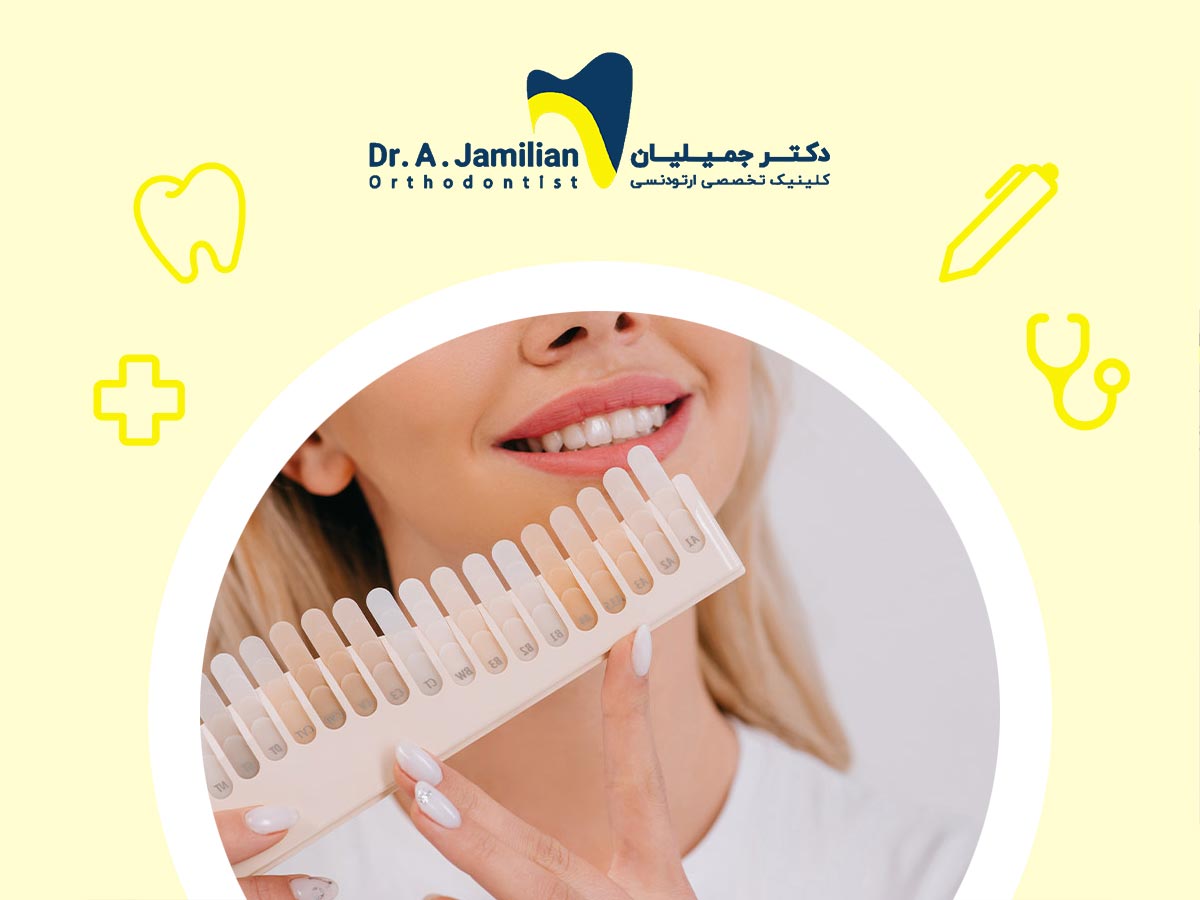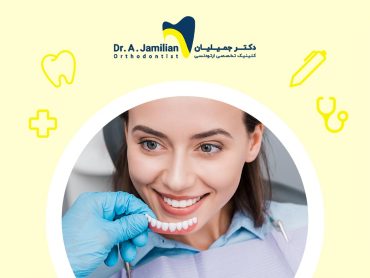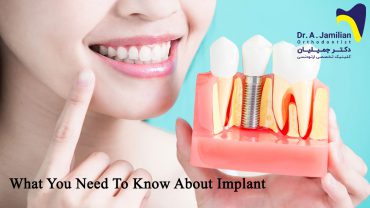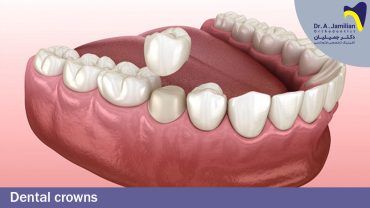Artificial dental crowns are a sort of cap covering the crown of your teeth completely. They are the same colour and shape as your teeth in question. Dental crowns can improve your teeth’ appearance and function. After getting restored the decayed and deformed teeth can be covered with dental crowns. The dental crowns are moulded by a specialist dentist and what is very important here is that the moulded crown by the dentist must be similar to other teeth in both terms of shape and colour. After placing the dental crowns, the next step is to take care of the covered teeth. Some of these routines will be discussed in this article.
When do we need to use dental crowns?
Here you can find some situations in which you need to use dental crowns:
- For covering the weakened teeth
- For covering the decayed and cracked teeth after getting restored
- For covering the teeth treated via root canal therapy
- For covering the implanted teeth
- For covering the teeth with deep stains or those who have lost their original colour
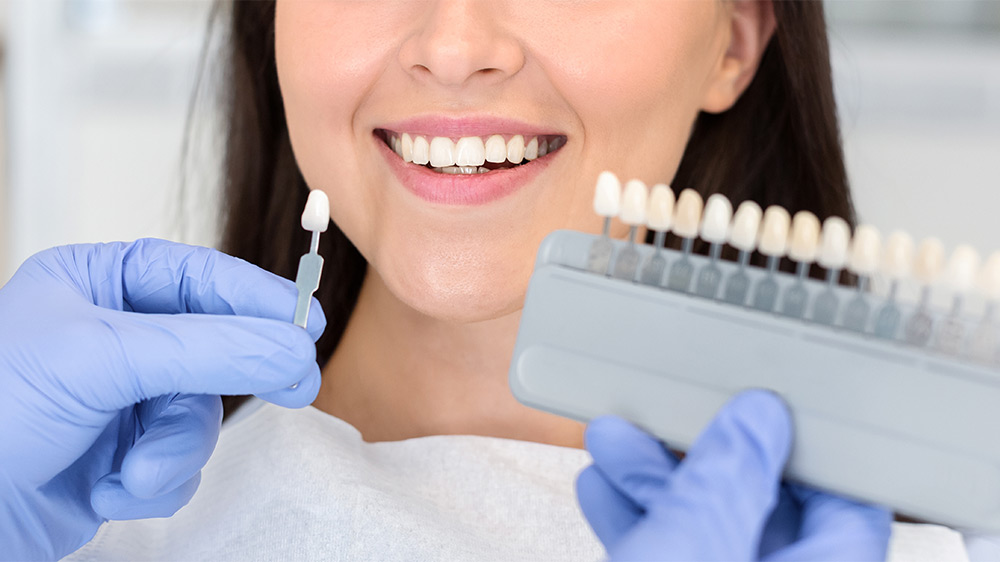
The Importance of Caring for the Dental Crown
As mentioned above, dental crowns are used when the teeth are in a certain condition or are in the weakest status, so dental crowns are used to restore and maintain them. In other words, the better we take care of our artificial crowns, the better we can keep the weak teeth beneath them. Also, the veneered teeth, more than other teeth, are vulnerable to food accumulation and tooth decay. So, if you take care of them properly, you will prevent the subsequent decay and gingivitis, fabricating and sticking process of dental crowns will consume a considerable deal of time and cost, which can be controlled through proper care of crowns.
Caring Routines of the Crowned Teeth
Here some tips on how to take care of and maintain dental crowns for the long term are recommended. Following them will help you to keep your newly fabricated and even your older crowns for a longer time:
1. To Follow the Health Tips after Using Dental Crowns
The first and most important routine on how to keep your crowned teeth is following the health tips exactly and routinely. Here you can find some dental and oral health tips:
Brushing
Proper brushing twice a day will be ideal if it is done after every main meal. Please be careful to use non-abrasive and soft toothpaste. Brushing, especially after drinking tea, coffee and drinks with pigments is vitally important in keeping the appearance of crowns. In addition, regular brushing will increase the lifespan of your dental crowns. Please keep in mind that to achieve a complete wash, brushing needs to last at least two minutes. The best time for brushing at night is before going to bed and in the morning is after eating your breakfast.
Dental Flossing
Dental floss must be used after every meal to clear all teeth out of the food remnants. Proper teeth flossing will help you to have healthier teeth in your mouth. Flossing must be carried out with enough care and caution because imposing excessive pressure would result in breakage or loosening of the dental crowns.
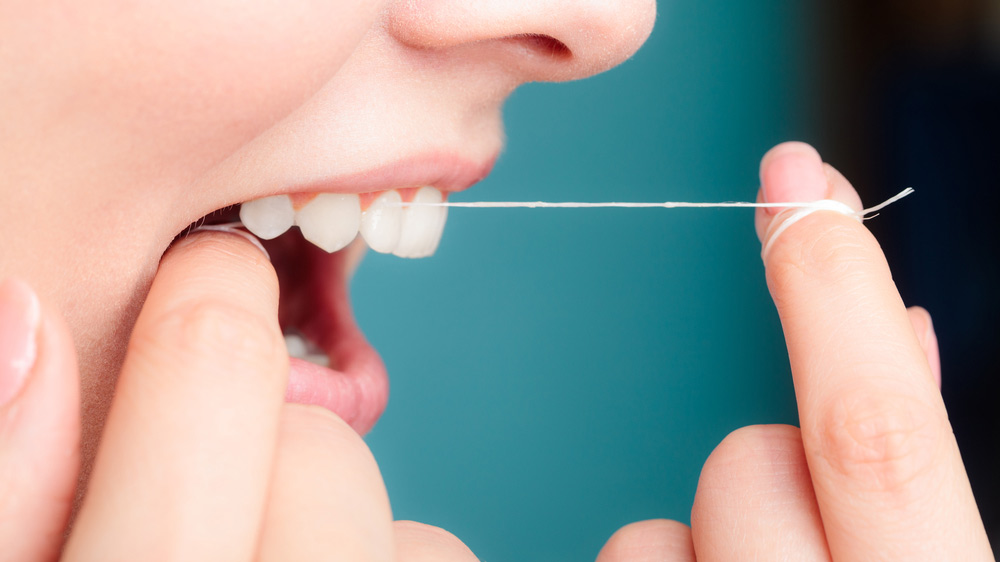
Using Mouthwashes
If you have dental crowns in your mouth, it is recommended to take advantage of anti-bacterial and alcohol-free mouthwashes at least once a day to rinse and wash your teeth and mouth. Also, gargling with salt water is very useful for disinfecting both gums and teeth and it plays a key role in keeping your teeth healthy. Therefore, it is recommended to do so after every brushing.
2. To Avoid Grinding the Crowned Teeth
Some people used to grind their teeth while sleeping. Teeth grinding or bruxism would destroy your original crowns. Likewise, bruxism can break or demolish your artificial dental crowns. Using night guards, fabricated by a specialist dentist, particularly for any patient regarding the oral and dental form, is recommended to prevent and treat bruxism or dental grinding. Moreover, night guards can be used by athletes when they are dealing with heavy sports activities during which physical harm and attacks against their face and head are unavoidable.
3. To Avoid Eating Hard Foods with your Crowned Teeth
Eating ice cubes, rigid nuts, semi-cooked popcorn and sticky foods like toffees and caramel all damage your tooth crown, loosen your dental crown out of place and more. Sometimes even chewing nails would damage the dental crowns. Some people used to chew their pens’ heads absentmindedly when they sat behind their desks, which is very dangerous for the crowned teeth.
4. To Visit a Dentist Regularly to Examine the Crowned Teeth
After the placement of crowns over your teeth is completed you need to visit a specialist dentist to perform regular dental examinations and also for professional cleaning of dental crowns, it will ensure you are keeping your teeth properly. Sometimes, it is possible that the teeth beneath a crown have been damaged and you are not aware of that and would be diagnosed only through a professional examination by a dentist.
5. To Avoid Smoking
Your teeth’s apparent beauty will be lost from smoking and drug use over time. So, if you have dental crowns in your mouth, you need to know that smoking would damage the crowns, deform their apparent beauty and also destroy their health.
When You Need to Replace Your Dental Crown?
Depending on how they are kept, dental crowns often remain over teeth for 10 to 15 years. If you follow your dentist’s instructions on how to keep your dental crowns exactly and correctly, you will keep your dental crowns even more than 15 years. However, after the expiration of your dental crown’s lifespan, due to improper maintenance, or due to losing their colour, or due to physical damages, when they become larger or smaller than their original size, you need to decide about replacing them with new ones. To replace them repeat all previous stages including moulding and fabricating a new crown.
How to take care of dental crowns FAQ
Tough and sticky foods which would force the dental crown to move must be avoided. Some foods are nuts, tough candies, chewing gums, ice cubes, raw and rough vegetables, blazing and freezy foods and drinks.
Eating foods that are not to be chewed very much and do not force the dental crown to move about is allowed. Such foods can be cooked vegetables, soup, eggs, yogurt and soft fruits like bananas.
The crowned tooth and tooth without a crown are brushed similarly. The crowned tooth must be cleaned using a soft brush and toothpaste. Moreover, beneath the crown, which is a proper place for the development of gum diseases must be cleaned using dental floss and a soft brush.
No, because the whitening materials like whitening toothpaste or bleaching materials do not affect the porcelain used to produce the dental crowns.
You need to visit your dentist about 2 to 4 weeks after veneering your tooth. The reason is to ensure your dental crown does not shift its proper placement; after that, every six months once would be wonderful.
The average lifespan of a dental crown, depending on its type and how you would take care of it, is 10 to 15 years. If you note any abrasion or damage, now is the time to replace it.
